My 10 Best Tips For Cutting Down On Food Waste
Hello, I’m Rachel and I absolutely hate throwing things away. I’m that person whose freezer is full of scraps of things as it stresses me out to waste anything, and who washes out those plastic containers you get with a Chinese takeaway and uses them until they fall apart, instead of buying tupperware (they’re brilliant, they come in two different sizes and stack really well in the fridge or freezer – my only issue is the Chinese, Thai and Indian around us tend to send two different brands, so sometimes I’m hunting around for the correct lid!) In interviews about my book, Student Eats I always get asked for tips on budget cooking and shopping for students, and most of these are actually about reducing food waste. So, as this is something so important to me that I never seem to share, I thought I’d put together a post with some of my best hints and tips!
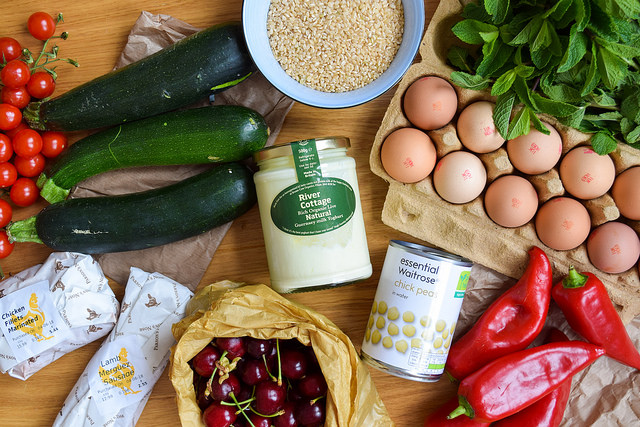
1. Only buy things that are on offer if you can store them
I love special offers. The extent to which I am obsessed with the yellow sticker, reduced to clear section in Waitrose cannot be quantified, and I’ve always got an eye on a bargain. However, you need to make sure you only give in the the lure of a special offer.
When it comes to reduced items, they clearly either need to be used straight away that day so you need there not to already be a plan for dinner, or you need to be able to freeze them. I’m sure only to choose things like meat and part cooked baked goods that need to be finished in the oven that I’d buy anyway like beef mince, chicken portions and ciabatta loaves. It does not matter how good value that lamb shank looks, if it is something you never really cook with! I tend to steer clear of duck and fish that has not been turned into breaded fish pieces of fishcakes, however, as I have had bad experiences. A good tip for always having sliced bread is first to find a loaf that is reduced to clear (it will still be perfectly fine, and won’t go off in a day if frozen) – if you live near me Waitrose in Fulham always has trollies of these with yellow stickers on at the back of the store – or to slice your fresh bread and freeze the slices if you know you won’t eat the whole loaf. If you’re big on bakery bread, you can get your loaves sliced for you in store if you go to Gails or Whole Foods.
As for the type of 2 for £5 offers, and buy one get one free exercises, you really need to do the same, and be even more stringent about it with fresh goods. Offers I love are things like Waitrose’s perpetual 2 for £6 on packs of bacon as I can always squeeze another pack in the freezer, but I never take advantage of their 3 for £10 on whole chickens, as I can’t even fit one in my freezer, let alone three! Keep in mind all fruit and veg go off faster, though frozen berries you freeze yourself will always taste better in pies and smoothies than the ones you buy in the freezer section! To this end, while I always look, I’m careful never to be taken in buy those Dine in for £10 offers as I rarely eat processed foods, but do buy them if I’m going to get something out of them (even Mary Berry has admitted to doing this!) Essentially, a bottle of wine and some other food for £10 is a total bargain, but only choose if if the items are meals you will eat or can repurpose; some of my favourites are bags of salads meant as sides, cured meat platters meant as starters, or punnets of strawberries designed for dessert.
2. Get to know what is in your freezer
You know how I just said about using your freezer to store things you buy when they’re great value to use for later? This is simply no use if you don’t know what is in your freezer. Lots of people laugh at me for this, but I keep a list of everything in my freezer on my iPad so I know what is in there when it comes to meal planning, so I don’t find myself buying chicken thighs when there were already portions in there – freezers are great for preserving food, but it won’t last for ever in there so you may find a stray fillet of fish at the bottom of a drawer one day that has caught the frost so can’t be eaten that would not have been overlooked with a list!
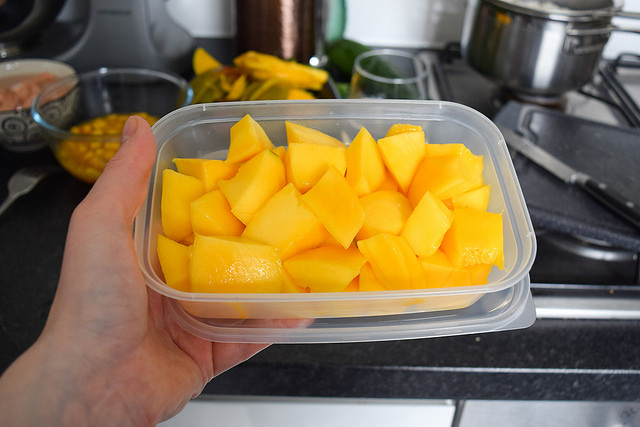
3. Portion things off in your freezer
This is especially important if you’re cooking for just the one or two of you. Most things like meat and fish (I’m looking at you chicken thighs!) are better value if you get the biggest pack available, but then you’re left with way more meat than you need. You’ll probably end up with waste if you freeze a whole pack, so make sure you open it up and freeze portions separately so you can only defrost what you need later on.
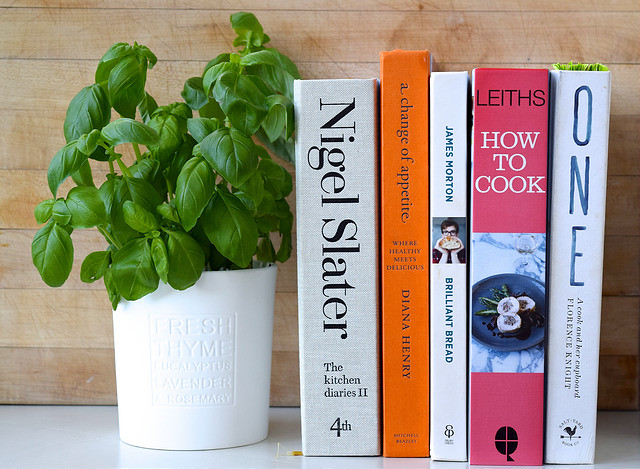
4. Meal Plan
I know you’ve heard this about a hundred times before, but planning ahead will make sure you keep food waste to the minimum. I’ve got less religious about this now (see tip 5) but something I used to do at university is keep a running list of leftover items as I planned to make recipes. So, if a recipe would only use half a ball of mozzarella or half a lemon, I knew I had those ingredients to work with while planning my other meals.
Meal planning has become one of my favourite things to do. What can be better than sitting down on a Sunday night before dinner with a glass of wine or a G&T, flipping through magazines, cookbooks and food blogs, deciding what you’re going to make for the week ahead? (You can find my Weekly Meal Plans here!)
5. Keep a few meals free for experimentation
No matter how well you plan your meals, unless you’re able to shop somewhere that will only sell you exactly what you need (I’ve had a disagreement with a vendor at Borough Market before because they would only sell me a massive bunch of parsley rather than a smaller amount) you will have leftover fresh bits from packets and making recipes a few days after your food shop. So, don’t plan a couple of lunches and perhaps a dinner and use these meals to look at what you can make from things that need to be used up – lots of recipe writers will tell you some of their best ideas come from doing this!
6. Utilise scraps that would otherwise be thrown away
Here we’re talking about the bones from chicken and joints of beef you’ve taken the meat off of, prawn shells, vegetable peelings, stale bread and cheese rinds. Things like that. When it comes to meat or chicken bones, or fish scraps and prawn/ crab shells, portion them off (taking out any fat and gristle) into freezer bags to make chicken / beef / fish stock once you’ve got enough. Do the same with veggie peelings, but keep them in the fridge, only for a few days to make veggie stocks (which you can then freeze), throwing in any onion halves and wilted veggies you may have at the bottom of the vegetable drawer (I’ve put more hints and tips for this in my recipe for Farmhouse Chicken Stock). I will admit that I don’t do this at the moment as I simply don’t have the freezer space, but it really upsets me that I can’t!
Stale bread is a favourite of mine. While I do try to slice and freeze loaves for toasting the moment they’re no longer fresh, it is inevitable I’ll get a single crusty roll in a pack, or the end of a homemade loaf where there is just not enough to make a panzanella (my recipe is in Student Eats!) So, I have a breadcrumb box in the freezer. Whenever I get scraps like this I simply gather them all up in the food processor, make breadcrumbs and freeze them until I need them to pad out meatballs, or coat something before baking or frying. As for cheese rinds, I store these in another freezer bag; they add a wonderful unami depth to stocks, soups and stews.
7. Get used to repurposing leftovers
Yes I’m talking about how you can make an amazing chicken pie from leftover roast chicken, but what I really want to focus on here is takeaway food. Okay, so if you get a burger or a pizza you probably won’t have much to work with, but if you order Chinese, Thai, Vietnamese or Indian food with any amount of regularity I can promise you that either the portions that arrive will be way too big, you’ll over order or both. As long as you make sure to only cook the leftovers the next day (food safety and all that) I always make another whole meal with just a few editions from the cupboard. Rice is great to cook up again with any leftover bits of meat and sauce in a type of re-fried egg fried situation – do add more egg to stretch it further! Bombay potatoes and a bit of filo pastry basically make minimum fuss baked samosas, just add a few frozen peas! The other night along with our usual Chinese starter order of sweet and sour chicken balls and prawn toasts we tried some prawn dumplings; I loved them and he hated them, and as I ate them all my beef with veggies in oyster sauce was barely touched. I heated it up the next night with some lightly stir fried sugar snap peas from the fridge, a hit of Chinese vinegar to brighten it up a bit and two portions of fresh cooked egg noodles – utterly delicious!
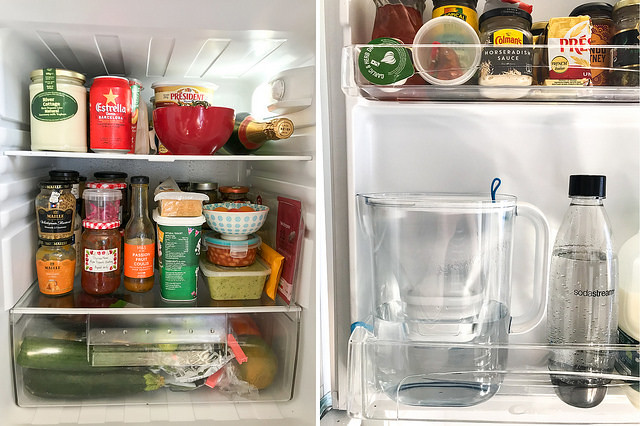
8. Research ways to repurpose the things you throw away the most often
Every time I end up throwing something away more than once, I research ways to avoid this. Usually I end up throwing something as I can only buy them in bigger quantities than I need. That I’m always throwing jalapeños away (I hate the texture of chillies that have been frozen and then defrosted) has led to a habit of pickling them, and annoyance at always having to throw away the last bit of feta as the packs are always too big for me (this came before Odysea launched portion packs) turned into fried feta salads at lunchtime.
9. Get better at planning your portion sizes
Because I’m careful to only cook the food we need, leftovers are almost always planned for, so don’t go to waste. Get religious about measuring out your rice and pasta before cooking so you only make the amount you need, and wherever possible cut down recipes to serve just the amount of people you’re cooking for. Write the amounts of things you need for recipes on your shopping list so you don’t buy too much. My favourite kitchen scales are only £15 on Amazon, and as well as making your baking way more accurate (I’m looking at you people still cooking with cup measures!) I promise you you’ll have got the money back in cutting down on food waste within a month or two.
10. Don’t take use by dates and gospel
Basically, use your brain. Just because the date supermarkets have to put on something to cover their backs in case they get sued says something is not safe to eat, it does not mean you shouldn’t. Fruit and veg you get at the farmers market doesn’t have a use by date on it, does it! As a simple rule of thumb, trust your eyes and your nose. If something looks or smells like you should not eat it, don’t.

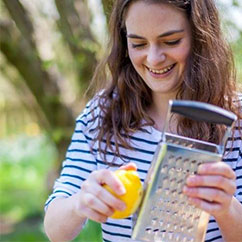
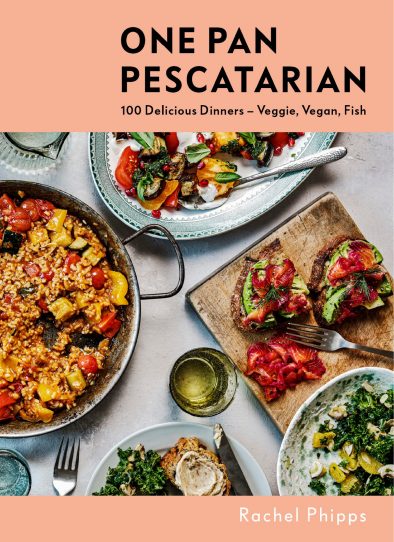
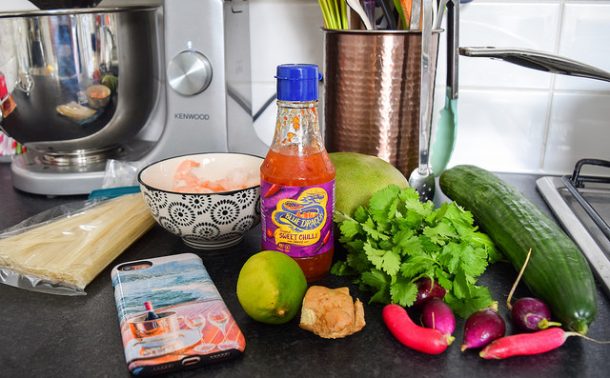
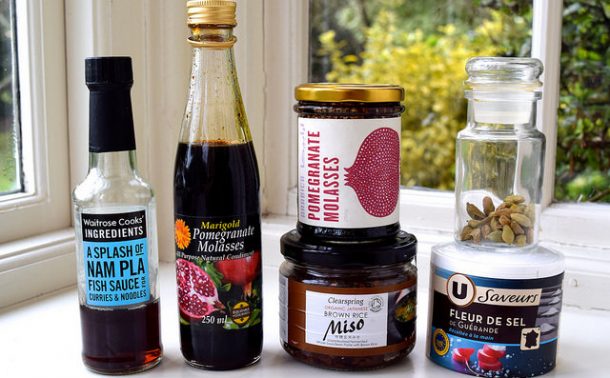

Discussion